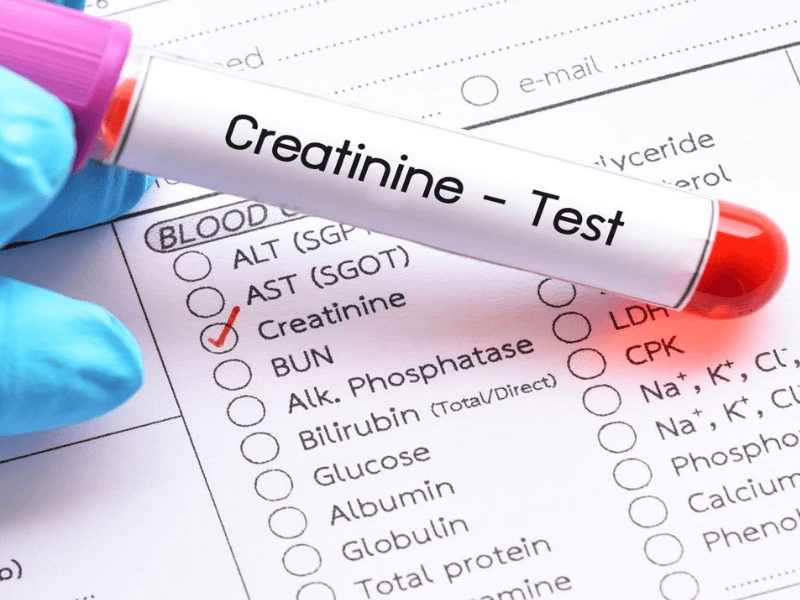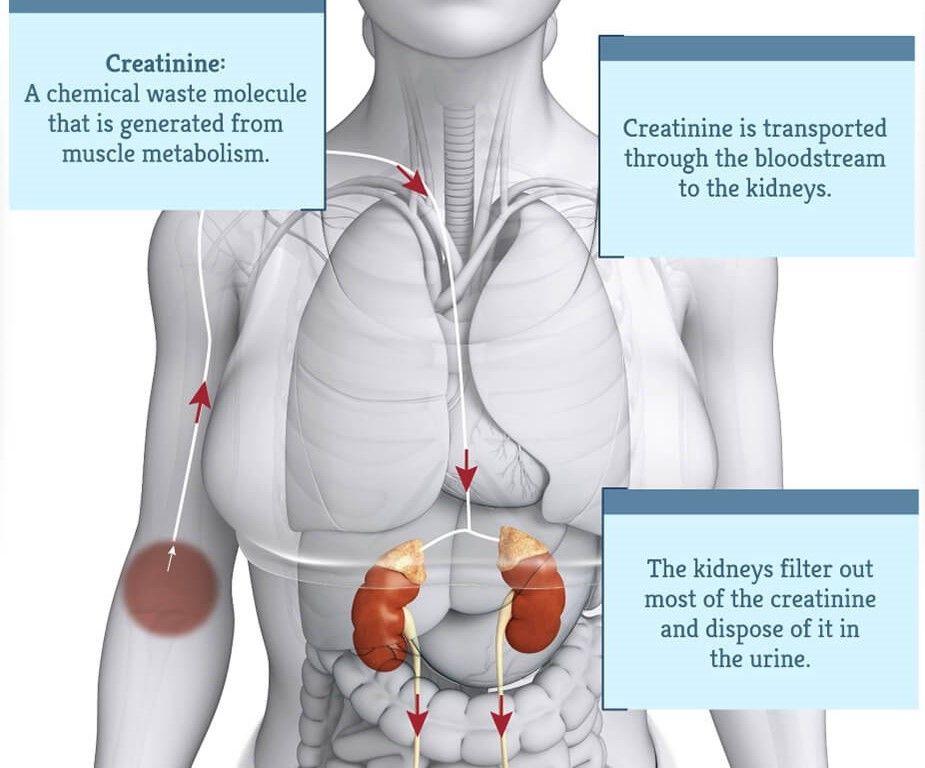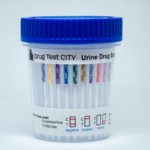
The most popular and consistent test for adulteration of drug tests is creatinine. Many people confuse this with creatine, but what is creatinine and how does it indicate that a drug test has been tampered with? Creatinine concentration is checked during standard urine drug tests.
What is Creatinine?
Creatinine is the primary metabolite of creatine that is produced when creatine is broken down in muscles. It is then expelled in the urine.
Since creatine is produced by the body at a consistent rate and it’s almost entirely removed from the blood stream by our kidneys it can be used to tell if our kidneys are functioning properly and also as a benchmark for the dilution of a urine sample.

What is a Normal Level for Creatinine Testing?
The amount of creatinine in urine varies depending on a person’s age, sex, muscle mass, water intake, activity level and overall health. Individuals with more muscle mass will produce more and so will individuals with higher activity levels.
The normal range for human urine is measured in milligrams per 24 hours. The expected range is 955 to 2,936 milligrams (mg) per 24 hours for males, and 601 to 1,689 mg per 24 hours for females. For medical testing a patient is often asked to capture their urine for a 24 hour period to get a more precise reading. For drug test adulteration testing the creatinine level is just a snapshot from a single sample.
For a urine adulteration test the cutoff level for creatinine is usually very low, often <5mg per deciliter. Levels in urine lower than this cutoff are not consistent with human urine and usually indicate an individual has engaged in water loading before being tested.

Usually for a sample that fails an adulteration test the urine will be clear and the urine sample will also have a specific gravity that falls outside the normal range (1.003 to 1.030). Some of the color can be replaced by ingesting a high level of vitamin B12, but not enough.
Checking Levels in Blood
If a physician finds creatinine levels in someone’s urine to be abnormally low and they do not suspect adulteration they will schedule other tests to determine the cause. If levels in the blood are high this usually means there is an issue with kidney function.
The normal range of creatinine for a blood test is 0.84 to 1.21 milligrams per deciliter.
Causes of Abnormal Creatinine Levels
Several diseases and scenarios can cause abnormal readings.
- Diabetes
- High Blood Pressure
- High protein diet
- Kidney infection
- Kidney Failure
- Kidney Stones
- Muscular Dystrophy
- Myasthenia Gravis
- Kidney Damage
When testing levels physicians will instruct patients to stop taking certain medications including Cefoxitin, Trimethoprim, and Cimetidine.
There are several supplements and activities that can alter levels.
Increase Creatinine Levels
- Vigorous Exercise – Exercise increases creatinine levels in the blood stream and urine, at least temporarily.
- Creatine Supplements – Creatine supplements are used to fuel muscles and slow down the production of pyruvic acid. More creatine leads to more creatinine by product.
- High Protein Diet – High protein intake has been shown to increase creatinine levels.
Reduce Creatinine Levels
- Eat More Fiber – A study of patients with chronic kidney disease showed that increased fiber intake lowered levels.
- Drink more water – The measurement of creatinine is directly dependent on the excess water in the body at the time of testing.
- Chitosan Supplements – A study of patients with renal failure showed chitosan supplements reduced levels.
- WH30+ Herb – A Chinese herbal concoction showed lowered levels in a study on rats.
- Salvia Miltiorrhiza – Another Chinese herb from the salvia family showed lower levels in a study of patients with renal failure.

